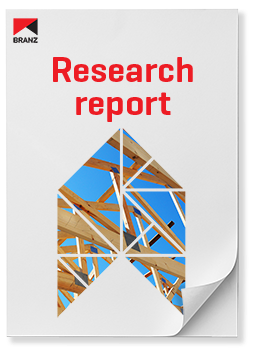
SR153 The corrosion of metallic fastener materials in untreated CCA- CuAz- and ACQ-based timbers (2007)
Product Description
This report provides a study into the corrosivity of a copper azole (CuAz) and two alkaline copper quaternary (ACQ) timber treatments relative to a copper-chrome-arsenate (CCA) preservative. The metals examined were mild steel, hot-dip galvanised steel and 316 stainless steel.
Standard weight loss and electrochemical techniques have been applied to both accelerated and non-accelerated test methodologies. Exposure times applied under laboratory conditions ranged from periods of 2 weeks to 14 months at 21°C. Relative humidities (RH) of 75%, 90% and 98% were considered.
It has been determined that, under the environmental conditions applied during the laboratory testing presented in the report, ACQ-treated timbers are more corrosive towards mild steel and hot-dip galvanised steel than any other type of treated timber. Indeed, the ACQ preservative consistently produced the highest time averaged corrosion rates. Degradation rates, relative to the CCA-based timbers, were an order of magnitude in some cases.
Mild steel corrosion rates in contact with ACQ-treated timbers (Pinus radiata) were observed to increase by a factor of up to five at the H3.2 hazard level relative to the equivalent CCA-treated timber. This factor was observed to increase to 12 in some cases at the ACQ H5 hazard level.
Product Information
| Publication date | 2006 |
|---|---|
| Author | Gareth Kear, Hai-Zhen Wu and Mark Jones |
| System number | SR153 |